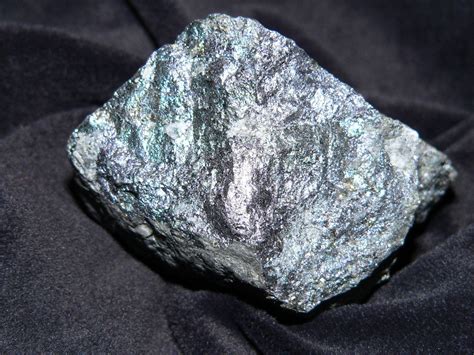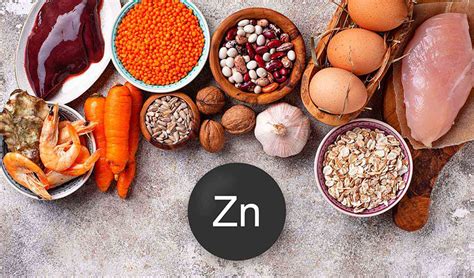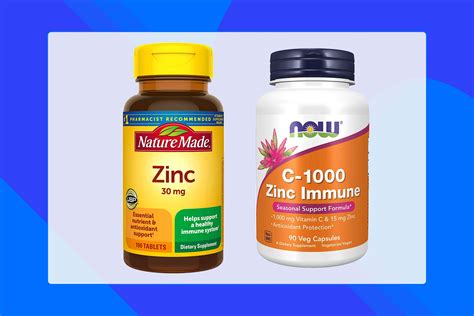What is the recommended daily intake of zinc for adult men, and what is its primary role in supporting testosterone levels?

The Essential Role of Zinc in Men’s Health
Zinc is an indispensable trace mineral that plays a pivotal role in over 300 enzymatic reactions within the human body. From supporting immune function and wound healing to DNA synthesis and cell division, its widespread influence makes it critical for overall health. For adult men, in particular, zinc holds a special significance due to its profound impact on reproductive health and, most notably, testosterone levels.

Recommended Daily Intake for Adult Men
To reap the myriad benefits of this vital mineral, it’s important to meet the recommended daily intake. According to the National Institutes of Health (NIH), the recommended daily allowance (RDA) for adult men (19 years and older) is 11 milligrams (mg) per day. It’s worth noting that the body does not store zinc, meaning a consistent daily intake through diet or supplementation is necessary to maintain adequate levels.
While 11 mg is the general recommendation, factors such as diet, lifestyle, and certain health conditions can influence individual needs. Vegetarians, for example, may require up to 50% more zinc than non-vegetarians because phytates in plant-based foods can inhibit zinc absorption.
Zinc’s Primary Role in Supporting Testosterone Levels
The connection between zinc and testosterone is well-established and critically important for male reproductive health. Zinc is deeply involved in several mechanisms that directly influence the synthesis and regulation of testosterone:
- Testosterone Synthesis: Zinc acts as a co-factor for various enzymes involved in the production of testosterone in the testes. Without sufficient zinc, these enzymatic reactions can be impaired, leading to a decrease in testosterone production.
- Luteinizing Hormone (LH) Regulation: Zinc plays a role in the function of the pituitary gland, which produces luteinizing hormone (LH). LH signals the testes to produce testosterone. Adequate zinc levels ensure proper LH secretion, thus supporting healthy testosterone synthesis.
- Aromatase Inhibition: Zinc has been shown to inhibit the enzyme aromatase, which converts testosterone into estrogen. By modulating aromatase activity, zinc helps maintain a healthy balance between testosterone and estrogen, preventing excessive testosterone conversion.
- Reduced Oxidative Stress: As an antioxidant, zinc helps protect the Leydig cells in the testes from oxidative damage. These cells are responsible for testosterone production, and keeping them healthy is crucial for optimal hormone levels.

Studies have consistently demonstrated that zinc deficiency is associated with lower testosterone levels, while zinc supplementation in deficient individuals can significantly restore these levels. For instance, research has shown that even mild zinc deficiency can lead to a noticeable drop in serum testosterone.
Dietary Sources of Zinc
Ensuring adequate zinc intake is typically achievable through a balanced diet. Excellent dietary sources include:
- Oysters: Arguably the richest source of zinc.
- Red Meat: Beef, lamb, and pork are good sources.
- Poultry: Chicken and turkey provide significant amounts.
- Legumes: Chickpeas, lentils, and beans.
- Nuts and Seeds: Pumpkin seeds, cashews, almonds.
- Dairy Products: Milk, cheese, and yogurt.
- Whole Grains: Oats, quinoa, brown rice.

Considerations for Supplementation and Excess Intake
While meeting the RDA is crucial, it’s also important to avoid excessive zinc intake. The tolerable upper intake level (UL) for adult men is 40 mg per day. Consuming zinc above this level, often through high-dose supplements, can lead to adverse effects such as nausea, vomiting, diarrhea, abdominal cramps, and even copper deficiency, as high zinc intake can interfere with copper absorption. Always consult a healthcare professional before starting any new supplement regimen.
Conclusion
Zinc is an indispensable mineral for adult men, playing a crucial role not only in general health but specifically in the maintenance of healthy testosterone levels. Adhering to the recommended daily intake of 11 mg, primarily through a diet rich in zinc-containing foods, is vital. For those with confirmed deficiencies or specific dietary restrictions, supplementation might be beneficial but should always be approached with caution and under medical guidance to avoid potential side effects from excessive intake. Prioritizing optimal zinc levels is a proactive step towards supporting overall male reproductive health and well-being.









